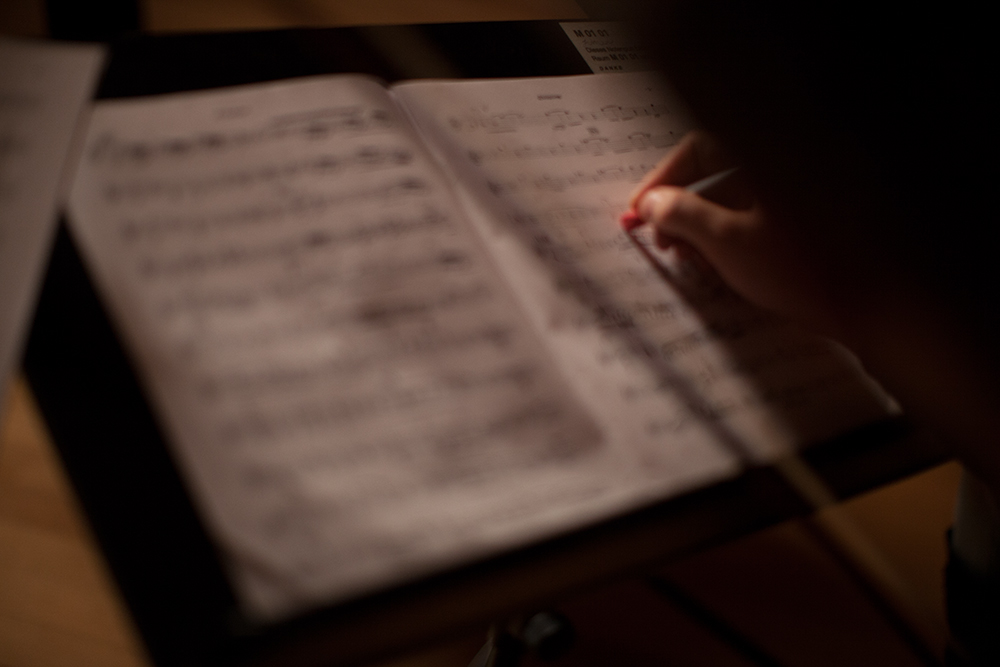The term Bildung [English renderings of which include “education” but also words like “development”, “creation”, and “formation”, depending on the context—Trans.] is one of those German words that virtually defies translation, since its fundamental meaning can probably only be understood with reference to German intellectual history, specifically German humanism and/or Weimar Classicism. It’s with reference to Wilhelm von Humboldt that Hartmut von Hentig explains the substrate of such an understanding of Bildung as follows: “Bildung is the stimulation of all a person’s faculties such that these may, in grasping the world by a process of mutual integration and limitation, unfold in a harmonious and proportional manner—leading to a self-determined individuality that, in its ideality and uniqueness, represents an enrichment to humanity.”

In times of competence-orientation—in other words, the orientation of all Bildung– or education-related processes toward utility and purpose—we would do well to explore the meaning of every single word in this statement, but let’s concentrate here on its central motif of grasping the world along with the aim of achieving self-determined individuality. The fact that this world can be experienced in its entire bounty simply by way of a suitably experiential journey was shown by Goethe in Wilhelm Meister’s Apprenticeship: Goethe’s main character, the “poor devil” Wilhelm, develops as an individual not only by dealing with great theatrical art—namely that of Shakespeare—but also by involving himself in the most diverse realms of private and social life.
However, the fast-approaching 19th century soon saw an idealised understanding of great art, of the noble and lofty, join forces with a notion of education that has a lot to do with working one’s way through obligatory canons of knowledge and masterpieces, a development for which Schiller paved the way: “Art descends edifyingly to the people to draw them playfully back up to its lofty heights.”
Hierarchy had entered the world and would henceforth proceed to govern notions of just what education was, establishing what was high and what was low, what was edifying and what merely tickled the senses, what was legitimate art and what was popular art—and as far as the musical field was concerned, educational work was to concentrate on masterpieces, on striving to comprehend their complexity and originality.
The fact that the lion’s share of music heard today is excluded from this definition and denied such recognition is just as obvious as the failure to recognise “education” as a process of self-understanding, which is to say: the construction and negotiation of meanings and purpose. Barbara Hornberger, writing from a cultural studies point of view, ascertains that particularly in our oft-maligned mass culture, “millions of educational processes take place every day—it’s just that these look different from that which is imagined by the educational regime of bourgeois tradition. These educational processes are not so strongly tied in with concentration and discipline; instead, they take place entertainingly and frequently in a way that is informal and neither certified nor evaluated.”
Associating education and entertainment in such a way is fit to make your standard traditionally educated bourgeois intellectual cringe—and conversely, someone who looks at educational processes in popular culture from the perspective of cultural studies could be quite irritated upon reading the demand made by Bertold Seliger in his book Klassikkampf. Ernste Musik, Kultur und Bildung für alle [Class Warfare. Serious Music, Culture, and Education for All]: that the separation between “entertainment music” and “serious music” be maintained, not in order to in any way demean the legitimacy of music-as-entertainment, but rather in order to do justice to the satisfying cognitive challenges that can lie in simultaneously complex and understandable music—particularly in light of the so-called classical music field’s current plight of having its potential go unrecognised and wasted as it degenerates into an elite, representational, and feel-good phenomenon under the yoke of the concert business, the classical music market, and big money. And to be sure, Seliger does include as “serious music” the “abundant serious output of pop and rock culture, jazz, and singer songwriters”.
It’s a furious and polemic book that Seliger wrote, a book that contains a long chapter on “Revolt. The Beethoven Principle” and that in many respects recalls the tirade held by Friedrich Gulda upon his acceptance of the Beethoven Ring in 1969 in which he let fly at the Vienna State Academy of Music (“I actually don’t think that such a thoroughly conservative institution as the Vienna State Academy has the right to confer an award bearing the name of one of music history’s greatest revolutionaries.”).
But in our context, it’s inspiring to take note of what the author has to say regarding educational processes: these are processes of appropriation beyond pretensions and distinction, of dealing with art in a way that’s unburdened by any canon of masterpieces or by Western art’s claim to hegemony. It’s about self-empowering acts, perhaps even—in the spirit of Peter Weiss—about acts of aesthetic resistance, most certainly about an individual discovery and conquest of music that’s driven by curiosity and accompanied by amazement, and last but not least about acting unconventionally and wilfully.
Wilhelm Meister’s apprentice-years are but brief, and upon their conclusion he might end up being someone whom Peter Bieri might characterise as “passionately educated”, because for such a person, education is what all things hinge on: “The educated person can be recognised by his violent reactions to everything that would stand in education’s way. His reactions are violent because this is about everything: about orientation, enlightenment, and self-knowledge, about imagination, self-determination, and moral sensitivity, about art and happiness. So towards intentionally thrown up hindrances and cynical neglect there can be no forbearance and no equanimity.”

